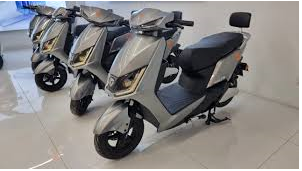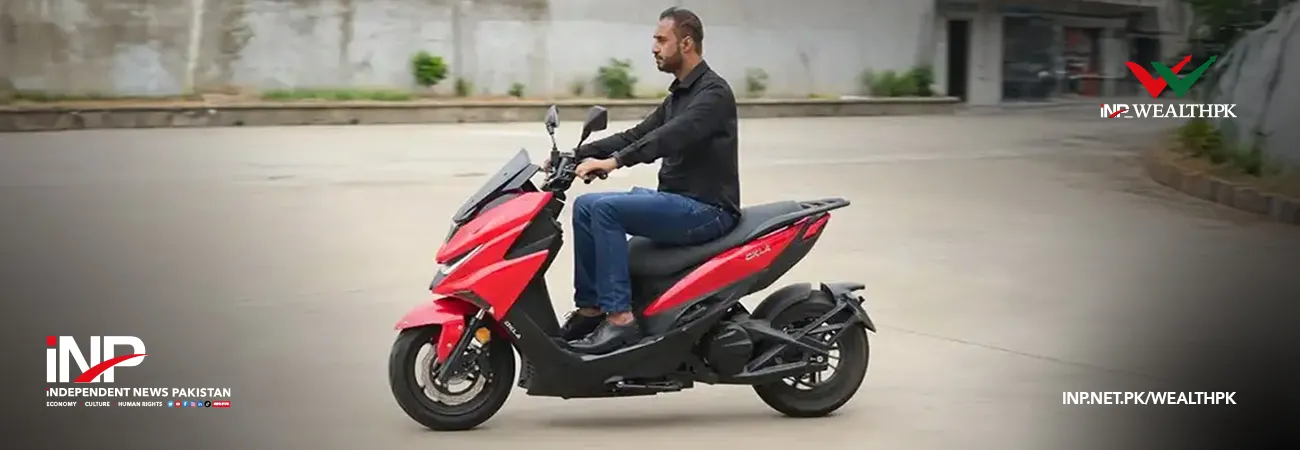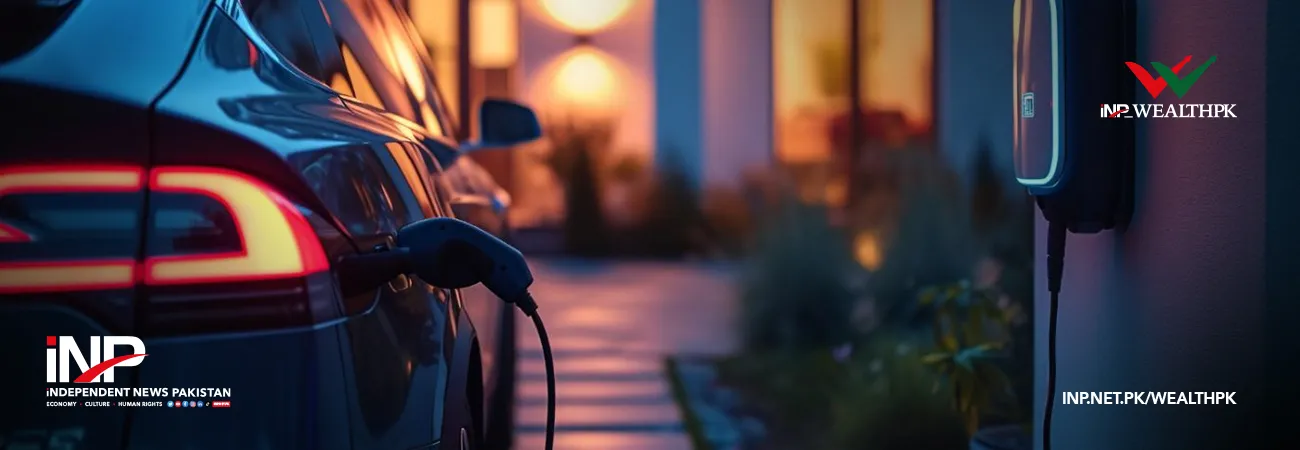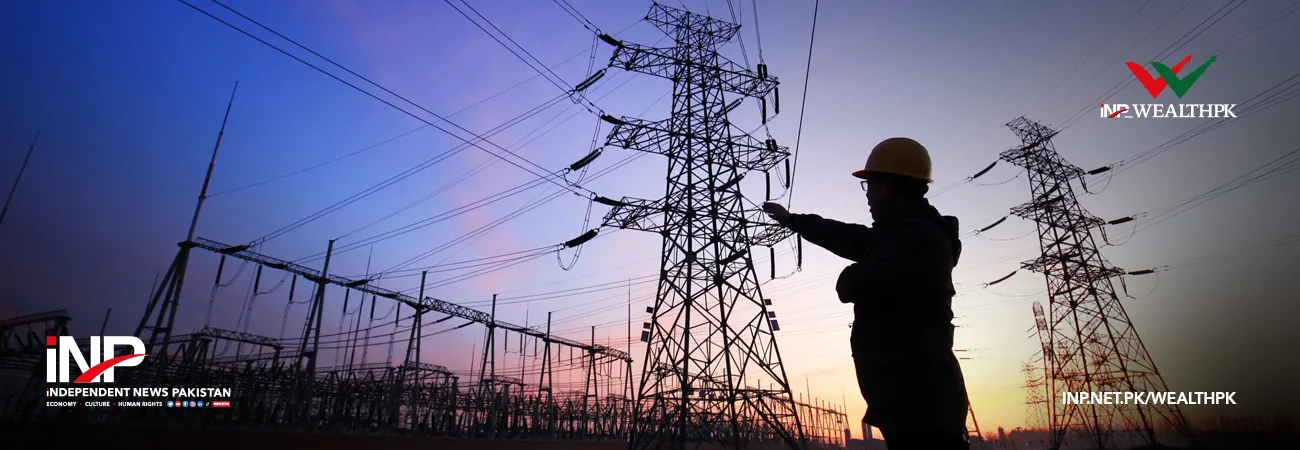آئی این پی ویلتھ پی کے
Muhammad Luqman
Scooters, once the most sought-after automobiles of Pakistan’s middle class in the 1970s and 1980s, are making a strong comeback on Lahore’s roads — this time powered not by petrol, but by batteries.
The new generation of buyers includes young people, with a growing number of women embracing this eco-friendly mode of transport.

With zero tailpipe emissions, electric scooters help combat pollution in Lahore, one of the world’s most smog-affected cities. Their compact size also makes them ideal for weaving through congested streets with ease.
Modern electric scooters feature lithium and graphene batteries, offering a range of 50 to 120 km per charge. They support fast charging (5–7 hours), app integration, GPS tracking, anti-theft features, and even helmet lockers.
“I bought an electric scooty because it’s a trendy vehicle. My father used to have a petrol-powered Vespa, which now feels quite outdated,” said Shoaib Ahmad, a young student. He added that driving an electric two-wheeler is far more economical compared to traditional motorcycles.
“My monthly fuel expenses have dropped from Rs 10,000 to just Rs 3,000,” Shoaib Ahmad said. According to motorcycle dealers, due to the high price point, buyers of most electric scooters, with prices starting from Rs 160,000, currently belong to the upper and upper-middle classes.
“We have scooters priced even beyond Rs 400,000 — nearly four times the cost of a Chinese CD-70 motorcycle,” said Javed Ahmad Bhatti, a dealer at Lahore’s largest motorcycle market on McLeod Road. He said the Punjab Government’s e-bike scheme has encouraged the use of electric scooters and motorcycles, particularly among the youth and women.
“Nowadays, you often see women riding scooties on Lahore’s roads. This has empowered them to travel independently across the city,” Bhatti told WealthPK. Under the newly launched Electric Vehicle (EV) Policy, the government is actively encouraging automobile manufacturers to produce more electric scooters and motorcycles in Pakistan.
“Under the new policy, EVs enjoy significant tax incentives — only 1% sales tax, low import duties on batteries and parts, no excise duty — along with support for local assembly,” said Almas Hyder, former Chairman of the Engineering Development Board (EDB).
Talking to WealthPK, he noted that Atlas Honda has also announced plans to launch its first locally made electric scooter during the current fiscal year. “Under the current policy, the government aims to replace at least 30% of traditional automobiles with EVs by 2030,” Hyder said, adding that more than 90% of vehicles on Pakistani roads could be electric by 2060.
Auto sector stakeholders are optimistic about the rising demand for electric vehicles, especially two-wheelers. “Over the past three years, EV scooter production in Pakistan has increased from 7,377 to 22,404 units. This number is expected to grow significantly in the coming years,” said Syed Nabeel Hashmi, former Chairman of the Pakistan Association of Automotive Parts & Accessories Manufacturers (PAAPAM).
Talking to WealthPK, he revealed that the government plans to issue over 60 licenses for the manufacturing of electric motorcycles, scooters, and rickshaws within the next two years, with a target of achieving 90% localization. “This will strengthen the depth and breadth of Pakistan’s auto sector, which has previously struggled due to rising production costs,” Hashmi said.
Credit: INP-WealthPk











